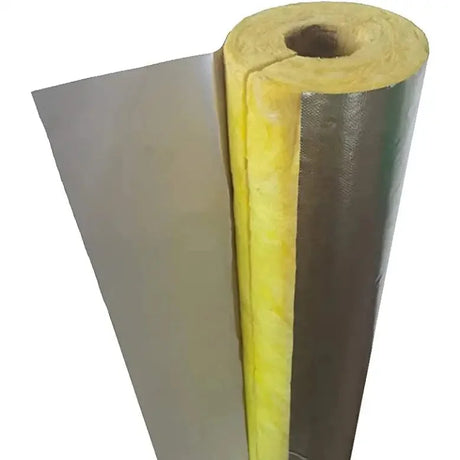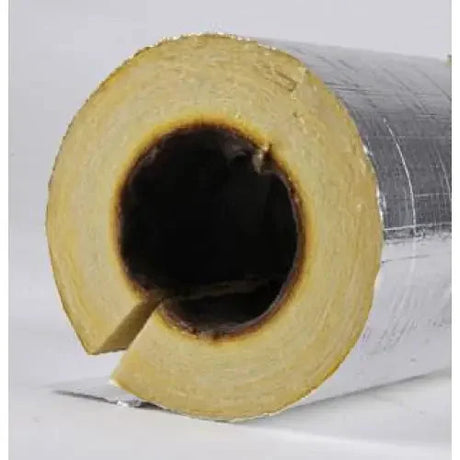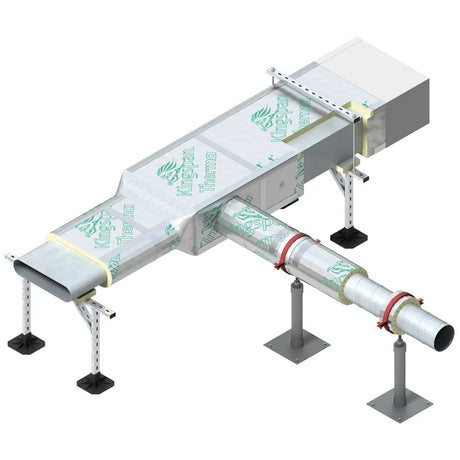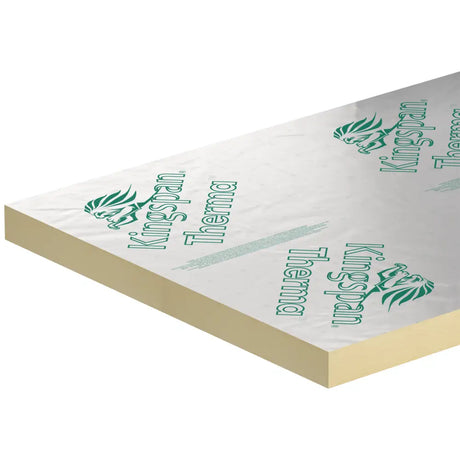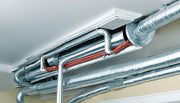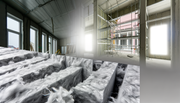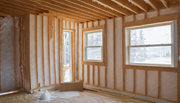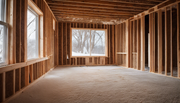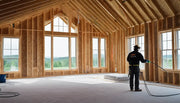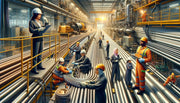Introduction
The construction industry plays a significant role in achieving the UK's ambitious energy efficiency and carbon reduction targets. With stricter building regulations and an increasing demand for sustainable solutions, the industry must stay informed about the latest energy efficiency measures and adapt as needed. This article provides an brief overview of energy-efficient practices in construction, focusing on insulation, and offers tips for professionals working in the sector.
The importance of insulation
Needless to say, insulation is a crucial aspect of energy-efficient construction. But what might not be on the first thing that comes to mind is the holistic impact it has on the built environment. Beyond reducing energy consumption, insulation contributes to improved indoor comfort, healthier living conditions, and enhanced building durability. Proper insulation minimizes temperature fluctuations and dampens noise, creating more comfortable spaces for occupants. It also helps regulate indoor humidity levels, reducing the risk of mold growth and maintaining better air quality.
So considering everything from protecting building components from moisture damage and thermal stress to extending the lifespan of structures and reducing maintenance costs, proper insulation is not only a key component of any energy-efficient target but also for healthier and more sustainable living.
Pipe and duct lagging
Pipe lagging and duct lagging are essential components of energy-efficient buildings. They minimize heat loss or gain in pipes and ductwork, enhancing the performance of heating, ventilation, and air conditioning (HVAC) systems. By installing high-quality pipe and duct lagging, we can all can contribute to a building's overall energy efficiency.
Selecting the right insulation materials
The choice of insulation materials significantly impacts a building's energy efficiency and each material has its advantages and disadvantages, such as thermal conductivity, cost, and installation ease. Choosing the right materials and sourcing them reliably and at good rates is crucial to suit your project's requirements and budget.
Meeting building regulations
The UK's building regulations outline minimum insulation requirements and energy performance standards for new and existing buildings. Industry professionals must stay up-to-date with these regulations to ensure compliance and avoid penalties. Familiarizing yourself with the latest editions of the Approved Documents L1A, L1B, L2A, and L2B is crucial for meeting energy efficiency requirements in residential and commercial buildings.
Incorporating renewable energy systems
Incorporating renewable energy systems, such as solar panels, heat pumps, or biomass boilers, can further enhance a building's energy efficiency. These systems not only reduce a building's carbon footprint but also lower energy costs for occupants. Professionals should consider the feasibility of integrating renewable energy solutions into their projects.
Airtightness and ventilation
Airtightness is essential for energy-efficient buildings, as it prevents unwanted drafts and heat loss. However, it is equally important to ensure adequate ventilation to maintain indoor air quality and prevent condensation. Professionals should strike a balance between airtightness and ventilation to create comfortable, energy-efficient spaces.
Training and certification
Obtaining relevant training and certification in energy efficiency and sustainable construction practices can enhance professionals' credibility and reputation. These qualifications can also help professionals stay current with industry best practices, regulations, and new technologies.
Conclusion
Energy efficiency is an essential consideration for professionals in the construction industry, and insulation plays a critical role in achieving energy-saving targets. By staying informed about the latest insulation materials, techniques, and building regulations, professionals can contribute to a more sustainable and energy-efficient built environment. Incorporating renewable energy systems, focusing on airtightness and ventilation, and obtaining relevant training and certification can further enhance professionals' expertise and marketability in the sector.



